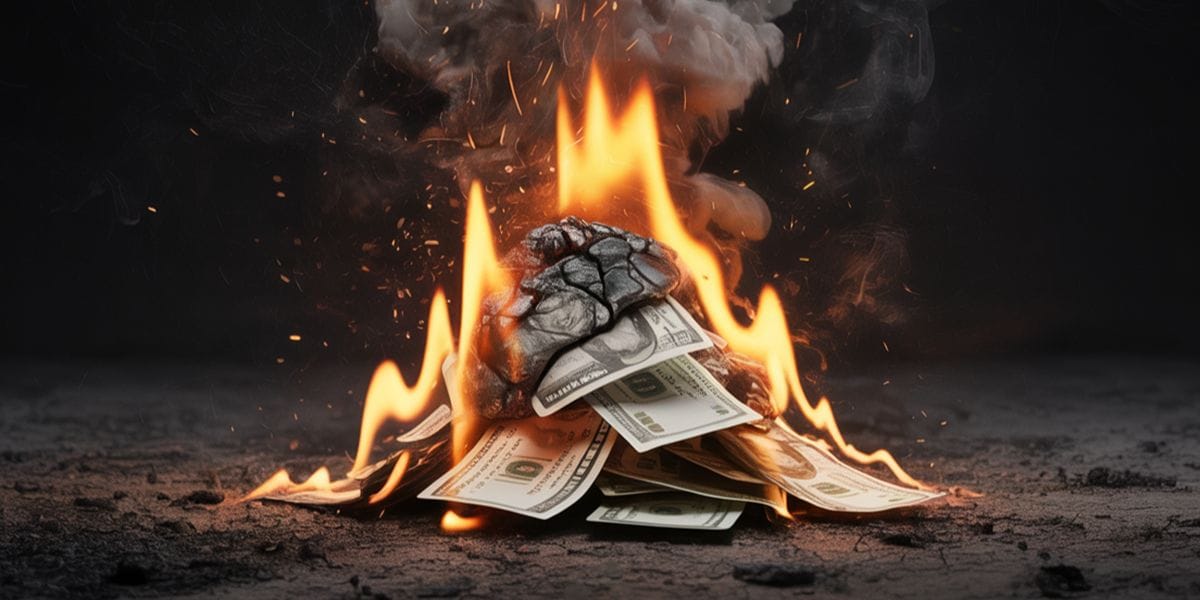- Notes To An Entrepreneur
- Posts
- Julia Child Was a Failure Until She Was 50 . . . Then She Wasn’t
Julia Child Was a Failure Until She Was 50 . . . Then She Wasn’t
It was Julia Child who invented the genre that gave us Anthony Bourdain, et al
Sorry, for the lack of a newsletter last week!
It was my annual trip to summer camp where me and 100 other guys have, well, “Men’s Camp.” We play golf, tell dumb jokes, play poker and pool basketball, eat too much . . . and we raised a whopping $500,000 for camperships for underprivileged kids (don’t ever believe entrepreneurs are tightwads because they are not; indeed, they are typically incredibly generous!)
And don’t forget about the new, weekly free Notes tool. This week, it’s the “Late Bloomer’s Roadmap.” Get it here!
At 36, Julia Child still had no idea what she wanted to do with her life.
She had tried government jobs, secretarial work, and even a stint in advertising. Nothing stuck. By her own account, she was restless, frustrated, a little lost.
Hardly the makings of the global cooking icon she would become.
Then came the meal.
The Meal That Changed Her Life
It was 1948 and she was sitting in a restaurant in Rouen, France. Julia ate a simple sole meunière prepared with butter, lemon, and parsley.
That meal lit a fuse.
For the first time, Julia felt passion, real passion, and not just for eating, but for understanding. She enrolled at Le Cordon Bleu, the most prestigious cooking school in the world.
Success? Hardly.
She was terrible at first. She failed her first exam. She was awkward in the kitchen. Her classmates dismissed her. She wanted to quit.
But Julia kept going (hint, hint!)
Leaning In To What Made Her Unique, Different, Better
Instead of quitting, Julia intuited that it was her very difference that was her “superpower”: She was older, a big woman (6 foot 2 inches!), American, not French, not classically trained, and not “supposed” to be there.
But what she realized was that it was those very things that set her apart and which could allow her to bridge a gap; she could make French cooking and French food approachable for the average American home cook.
That insight was her entrepreneurial breakthrough.

Birth of an Empire
She started with one cookbook.
Mastering the Art of French Cooking, published in 1961 when Julia was 49, became a massive hit. The book sold millions and turned French cuisine into an American obsession.
It also made Julia Child a household name.
But she did not stop there.
When public television invited her on to promote the book, she went off-script, cooked an omelet, and won the audience over with her unpolished charm. That single appearance launched the first ever TV cooking show, The French Chef.
It ran for a decade, spawned spin-offs, and made Julia one of the most trusted - and profitable - brands in food.
Julia Child became more than a cook.
She became an entrepreneur extraordinaire. She built an empire of books, television shows, speaking tours, and products, and she inspired generations to think differently about food.
All while proving it really is never too late, that reinvention is always possible.
🛠️ Free Tool of the Week
The Late Bloomer’s Handbook – This roadmap will help you do exactly what Julia did: take a passion, turn it into something real, and scale it into an opportunity, no matter where you are in life. Download the PDF here!
The Takeaway
Julia Child’s story is not about food. It is about timing, persistence, reinvention, and finding the unique angle only you can see. She was a “failure” until she wasn’t.
What do you see that others do not?
Bingo!
Learn from this investor’s $100m mistake
In 2010, a Grammy-winning artist passed on investing $200K in an emerging real estate disruptor. That stake could be worth $100+ million today.
One year later, another real estate disruptor, Zillow, went public. This time, everyday investors had regrets, missing pre-IPO gains.
Now, a new real estate innovator, Pacaso – founded by a former Zillow exec – is disrupting a $1.3T market. And unlike the others, you can invest in Pacaso as a private company.
Pacaso’s co-ownership model has generated $1B+ in luxury home sales and service fees, earned $110M+ in gross profits to date, and received backing from the same VCs behind Uber, Venmo, and eBay. They even reserved the Nasdaq ticker PCSO.
Paid advertisement for Pacaso’s Regulation A offering. Read the offering circular at invest.pacaso.com. Reserving a ticker symbol is not a guarantee that the company will go public. Listing on the NASDAQ is subject to approvals.
Steal This Strategy!
📖📖 Late Bloomers by Rich Karlgaard
A book on why success often comes later, with stories and research showing why “slow starters” have lasting power.
🎙️ The Next Chapter by NPR
A podcast that explores reinvention and how people thrive in later stages of life.
🎥 Viola Davis’s Oscar Speech (2017)
She talks about her long struggle and breakthrough later in life - a real example of late blooming.
📖 The Second Mountain by David Brooks
A reflection on how many people find deeper, truer success later, after the first mountain of career or status.
About Steve
Steve Strauss is the best-selling author of The Small Business Bible (and 17 other books), Inc.’s small business columnist, a lawyer (non-practicing), and an entrepreneur. He sold his last venture, TheSelfEmployed.com to Mark Cuban & Zen Business. Need a ghostwriter or a newsletter for your business? Contact Steve!
“Be bold! For boldness has genius, magic, and power in it.”


Reply